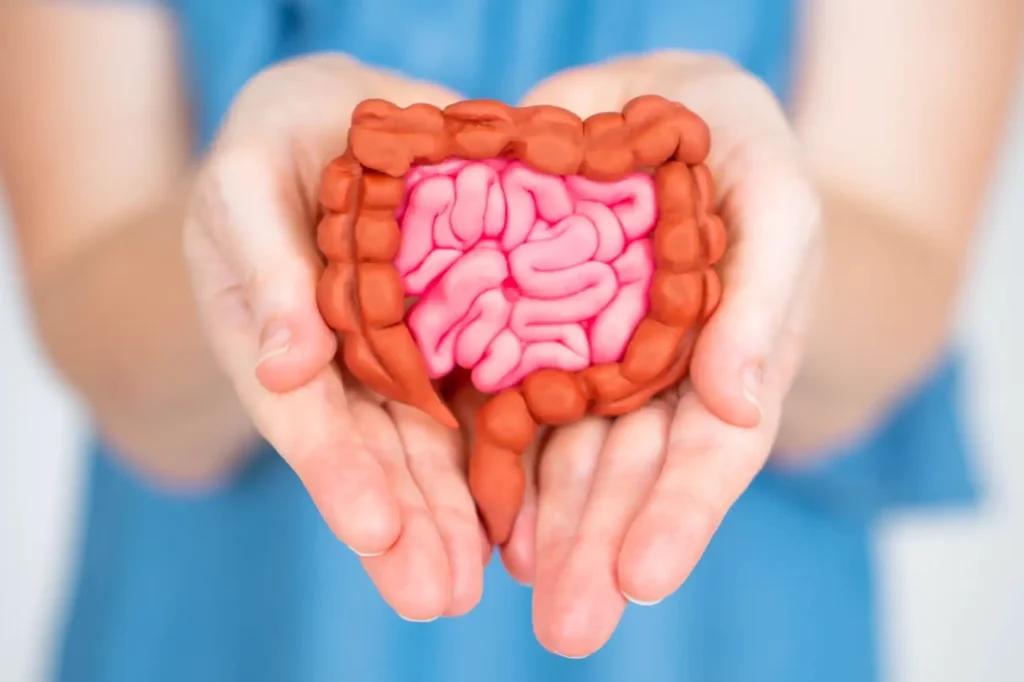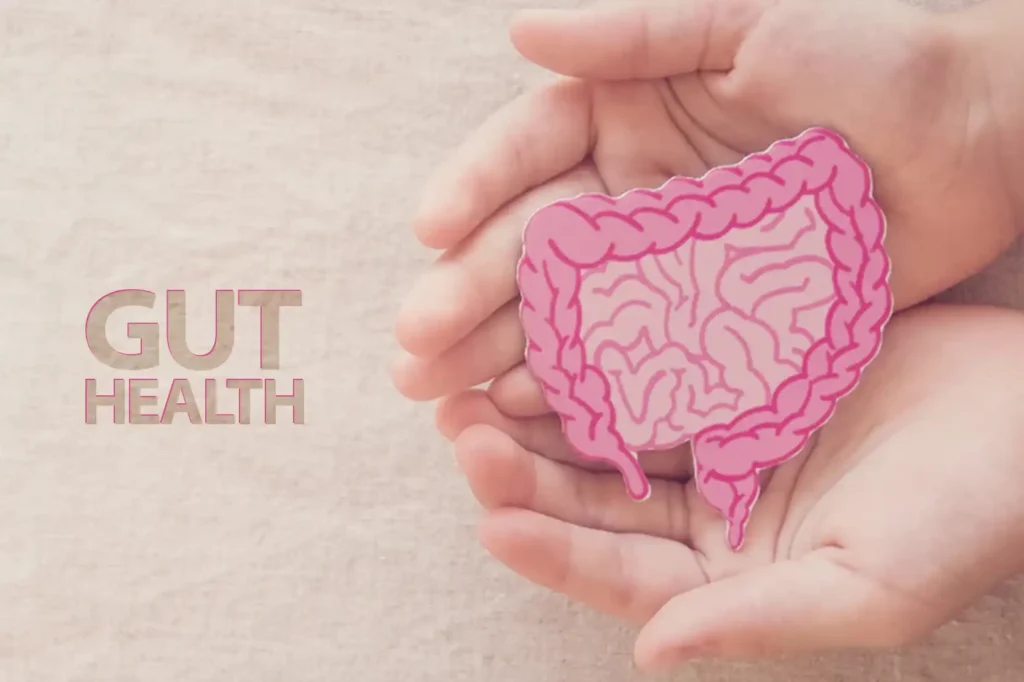Discover how to improve gut health naturally with simple, science-backed tips. Eat fiber-rich foods, include probiotics and prebiotics, stay hydrated, exercise regularly, and manage stress for a balanced gut microbiome.
Introduction to How to Improve Gut Health Naturally:
Having a healthy gut is key to overall well-being, influencing everything from digestion and immunity to mental health. Your gut is home to trillions of bacteria, both good and bad, that impact how you feel every day. When your gut microbiome is balanced, you experience better digestion, stronger immunity, and even improved mood. But if it’s out of balance, issues like bloating, fatigue, poor digestion, and even chronic diseases can arise.
So, how to improve gut health naturally? The answer lies in making simple yet powerful lifestyle and dietary changes. From eating fiber-rich foods to managing stress and staying active, improving your gut naturally is entirely possible. Let’s dive deep into the best natural ways to restore and maintain optimal gut health.
Improving gut health naturally can take a few weeks to several months, depending on diet, lifestyle, and existing issues.
Why Gut Health Matters:
Your gut is home to trillions of bacteria, collectively known as the gut microbiome. These microorganisms play a crucial role in breaking down food, absorbing nutrients, and protecting against harmful pathogens. When your gut is out of balance, it can lead to issues like irritable bowel syndrome (IBS), inflammation, and even mood disorders. Research shows that a healthy gut can improve everything from digestion to mental health, making it essential to prioritize. By focusing on natural ways to improve gut health, you’re not just fixing your stomach you’re boosting your entire body.

1. Eat a Fiber-Rich Diet for a Healthy Gut:
Fiber is essential for gut health because it feeds beneficial gut bacteria and promotes healthy digestion. A high-fiber diet supports a diverse microbiome, which is crucial for good digestion, immunity, and even brain function. Try to include at least 25-30 grams of fiber per day from these natural sources. Soluble fiber (found in oats, beans, and fruits) helps digestion, while insoluble fiber (found in whole grains and vegetables) keeps your bowel movements regular.
Best Fiber-Rich Foods for Gut Health:
- Fruits & Vegetables – Apples, bananas, berries, leafy greens, carrots
- Legumes – Lentils, chickpeas, black beans
- Whole Grains – Oats, brown rice, quinoa, whole wheat bread
- Nuts & Seeds – Almonds, flaxseeds, chia seeds
2. Incorporate Probiotic & Prebiotic Foods:
Your gut thrives on good bacteria, and probiotics help introduce beneficial microbes. Prebiotics, on the other hand, feed those good bacteria, helping them multiply and function properly. A combination of probiotics and prebiotics creates a balanced gut microbiome, reducing bloating, improving digestion, and enhancing nutrient absorption.
Best Probiotic Foods:
- Yogurt (with live cultures)
- Kefir
- Fermented foods like sauerkraut, kimchi, and miso
- Kombucha
Best Prebiotic Foods:
- Garlic
- Onions
- Asparagus
- Bananas
- Oats
3. Reduce Processed Foods and Artificial Sweeteners:
Highly processed foods, artificial sweeteners, and excessive sugar can harm gut bacteria by promoting harmful microbes and reducing diversity. Studies show that artificial sweeteners like aspartame and sucralose can alter gut microbiota and even lead to metabolic issues.
Instead of processed foods, focus on whole, natural foods to maintain a healthy gut. Swap sugary drinks for herbal teas, replace refined carbs with whole grains, and avoid artificial sweeteners by using natural alternatives like honey or stevia.
4. Stay Hydrated for Better Digestion:
Water is crucial for digestion and a well-functioning gut. It helps break down food, supports nutrient absorption, and maintains the mucosal lining of the intestines. Dehydration can lead to constipation and slow down digestion, so ensure you’re drinking enough daily.
How Much Water Should You Drink?
- At least 8-10 glasses per day (about 2 liters)
- More if you’re physically active or live in a hot climate
- Herbal teas and infused water (lemon, mint, or cucumber) also help
5. Manage Stress & Get Quality Sleep:
Your gut and brain are closely connected, and high stress levels can negatively affect gut health. Chronic stress disrupts gut bacteria, leading to digestive issues like bloating, constipation, or diarrhea. A relaxed mind leads to a happier gut, so taking steps to reduce stress naturally benefits digestion.
How to Reduce Stress for Gut Health:
- Practice mindfulness – Meditation and deep breathing exercises
- Engage in physical activity – Yoga, walking, or strength training
- Prioritize sleep – Aim for 7-9 hours of quality sleep each night
6. Exercise Regularly to Support Gut Function:
Physical activity boosts gut bacteria diversity and improves digestion. Studies show that moderate exercise can increase good bacteria, enhance metabolism, and prevent inflammation. Regular movement keeps food and waste moving through your digestive system efficiently, reducing bloating and constipation.
Best Exercises for Gut Health:
- Walking (30 minutes daily)
- Yoga & stretching (gentle movements help digestion)
- Strength training (builds muscle and supports metabolism)
7. Avoid Unnecessary Antibiotics & Medications:
While antibiotics are sometimes necessary, overuse can wipe out good bacteria in your gut, leading to imbalances and digestive problems. If you need medication, balance it with gut-friendly foods to minimize negative effects.
Tips to Protect Your Gut from Medications:
- Only take antibiotics when prescribed
- Eat probiotic-rich foods after a course of antibiotics
- Avoid unnecessary NSAIDs (like ibuprofen) that can harm gut lining
Avoid Processed Foods and Sugars:
Processed foods and added sugars can wreak havoc on your gut microbiome. They feed harmful bacteria, leading to imbalances and inflammation. Instead, focus on whole, unprocessed foods like lean proteins, healthy fats, and complex carbohydrates. Reading food labels and avoiding ingredients like high-fructose corn syrup and artificial additives can go a long way in improving gut health naturally.
FAQ
Most frequent questions and answers
Improving gut health naturally can take a few weeks to several months, depending on diet, lifestyle, and existing issues. Eating fiber-rich foods, probiotics, and reducing stress speeds up the process.
Yes! The gut-brain connection is real. An unhealthy gut can contribute to anxiety, depression, and mood swings, while a healthy gut promotes better mental well-being.
Common signs include bloating, constipation, diarrhea, fatigue, poor digestion, sugar cravings, and skin issues. If you experience these regularly, improving your gut health naturally can help.
Conclusion:
Taking care of your gut is essential for overall health, from digestion and immunity to mental well-being. By eating fiber-rich foods, including probiotics and prebiotics, staying hydrated, exercising, and managing stress, you can naturally restore and maintain a healthy gut. Avoiding processed foods, antibiotics, and artificial sweeteners further enhances gut health. Start making these small but impactful changes today and experience better digestion, energy, and well-being!








